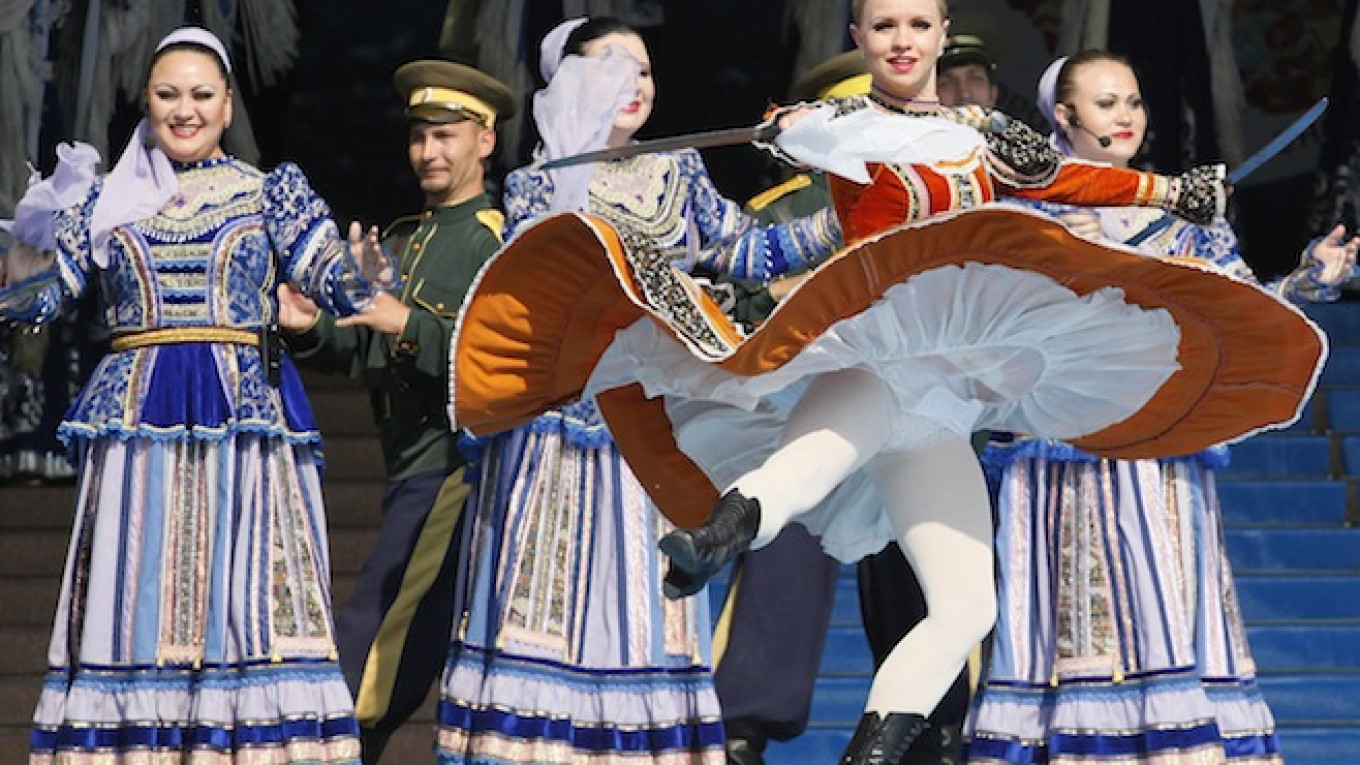After annexing Crimea to "protect" its Russian speakers, Moscow is now seeking to increase the number of Russian speakers in other former Soviet states, a news report said.
The Education and Science Ministry and the Foreign Ministry's branch for promoting the Russian culture abroad, Rossotrudnichestvo, have asked for 7.6 billion rubles (almost $200 million) over the five years to support Russian-language education in former Soviet states and other nations, as well as inside Russia, Izvestia reported Wednesday, citing a copy of the agencies' request.
The report did not specify how the money would be divided among programs in various countries, but Izvestia said the authors of the document stressed a particular decline of Russian-language education in former Soviet states.
The document also decried a drop in linguistic proficiency among students in Russia and the widespread use of slang in their speech and writing, and insufficient opportunity for studying the language in foreign countries.
"The ongoing complex of state measures, despite positive dynamics in separate indicators over the past 10 years, has not produced a decisive positive effect on the positions of the Russian language in the world," the ministries' report to Prime Minister Dmitry Medvedev's Cabinet was quoted as saying.
The money would be spent on supplying textbooks and manuals, providing "organizational and methodological support," funding Russian schools overseas, creating a network of open-education centers, training language teachers and helping "innovative" educational projects, the report said.
Unidentified Education Ministry officials were cited as warning that in addition to the high price tag on the program and the potential vulnerability of some of the funding to local corruption, the plan could be hindered by opposition to Russia in a range of foreign countries over its actions in Ukraine.
According to the ministry's statistics, 150 million people in the world consider Russian their native language, including more than 120 million people in Russia and about 22 million in other former Soviet states, Izvestia reported.
The Institute for Developing Education's director, Irina Abankina, said that more than two decades after the Soviet collapse, many students in former Soviet republics are seeking to learn foreign languages other than Russian, Izvestia reported.
"Russian is be an additional language, and, of course, the number of people for whom it is the main language has declined," she was quoted as saying. The Cabinet is yet to review the proposal and make a decision, Izvestia reported.
A Message from The Moscow Times:
Dear readers,
We are facing unprecedented challenges. Russia's Prosecutor General's Office has designated The Moscow Times as an "undesirable" organization, criminalizing our work and putting our staff at risk of prosecution. This follows our earlier unjust labeling as a "foreign agent."
These actions are direct attempts to silence independent journalism in Russia. The authorities claim our work "discredits the decisions of the Russian leadership." We see things differently: we strive to provide accurate, unbiased reporting on Russia.
We, the journalists of The Moscow Times, refuse to be silenced. But to continue our work, we need your help.
Your support, no matter how small, makes a world of difference. If you can, please support us monthly starting from just $2. It's quick to set up, and every contribution makes a significant impact.
By supporting The Moscow Times, you're defending open, independent journalism in the face of repression. Thank you for standing with us.
Remind me later.


